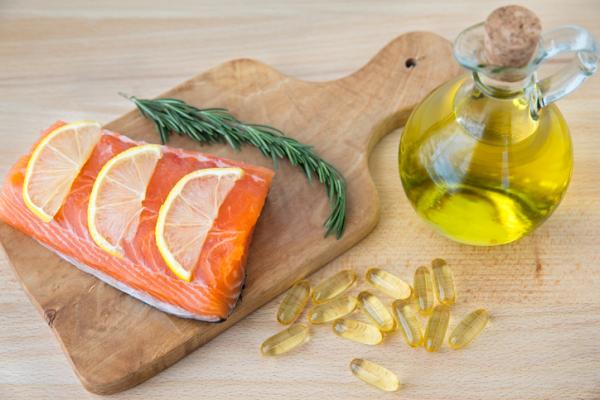
April 19, 2022 – New breakthrough research by a University of South Florida lab team describing how certain fats can harm or repair the heart after injury has been accepted by a journal of the American Physiological Society.
A manuscript by Ganesh Halade, PhD, an associate professor of cardiovascular sciences at the USF Health Morsani College of Medicine and a researcher in the USF Health Heart Institute, appears in the American Journal of Physiology-Heart and Circulatory Physiology, published March 25.
Dr. Halade’s research article is titled “Metabolic Transformation of Fat in Obesity Determines the Inflammation Resolving Capacity of Splenocardiac and Cardiorenal Networks in Heart Failure.’’
A key message of the manuscript is how a certain type of healthy fat known as docosahexaenoic acid (DHA) – which is present in Omega-3 fish oil, as found in salmon and tuna – works in tandem with enzymes from the spleen to clear the inflammation in a damaged heart. The spleen plays an important role because it sends immune cells with bags of healthy fat that operates cardiac repair after major injury such as a heart attack.
“So the fat intake needs to be of optimal quality and used by the right enzyme of immune cells,’’ Halade said. “This is all about cardiac repair and the inflammation clearing molecules (resolution mediators) involved in that repair. It’s essential to the resolution process.’’
Another key message is more about prevention and the genesis of cardiovascular disease: How a chronic and surplus dietary intake of safflower oil (SO, omega-6) can lead to residual inflammation of spleen, kidney, heart, and biosynthesis of pro-inflammatory mediators after an ischemic event. SO is a type of fat commonly used in processed and fast foods that drives chronic inflammation.
“The big question for most people is whether a fat is good or bad, or is omega-3 helpful for heart health?’’ Halade said. “Everyone is dealing with this question. We’re thinking beyond that by looking at how fat is used in the body after a heart attack and in what forms.’’
“All fats are not created equal,’’ he added, “and despite the extensive literature, the effect of fat intake is the most debated question in obesity, cardiovascular, and cardiorenal research.’’
In his research, Halade and his team put 100 mice on a 12-week diet of processed (SO) foods to develop residual inflammation and then 50 mice randomized on a primarily DHA-enriched diet for next eight weeks before subjecting to ischemic surgery in mice.
The team made sure both diets had same quantity of calorie per gram of diet. The surplus and chronic intake of SO increased inflammation along with a dysfunctional cardiorenal network. In contrast, DHA increased survival following such heart damage (heart attack).
A result of the study was that the alignment of immune cell enzymes from the spleen and DHA fats are essential to cardiac repair. These so-called “resolution mediators (a family of specialized pro-resolving mediators) is the body’s natural defense process without a negative impact on the body’s physiological response,’’ Halade said.
Among the key findings in the study:
- DHA supplement improved survival after experimental heart attack to mice
- DHA boost safe clearance of inflammation (resolution) from an injured heart without change in the acute phase of the inflammatory response (day 1), with increased expression of Arg-1, MRC-1, and YM-1 in spleen and infarcted area. These agents are resolution and reparative markers of immune response.
- DHA, along with the body’s natural enzymes, enhanced the ability for the spleen and heart to work together in repairing damage.
- SO primed the spleen and kidney to induce pro-inflammatory pathways and renal inflammation.
“Our next step is to determine the enzymatic machinery or immune responsive enzymes that biosynthesize resolution mediators after ischemic (decreased blood flow commonly called a heart attack) event,’’ Dr. Halade said.
Part of Halade’s research focuses on how unresolved chronic inflammation and immune responsive metabolic dysregulation contributes to ischemic and non-ischemic heart failure. He is involved in studies of heart failure etiology with an integrative approach focusing on splenic leukocytes and heart, as well as the measurement of inflammatory mediators that impair cardiac repair and resolving lipid mediators that facilitate cardiac repair after a heart attack.
Click here for a related story on Dr. Halade’s heart research at USF.
Halade hopes his latest work can shed new light on controlling chronic inflammation and treating heart failure — a progressively debilitating condition in which weakened or stiff heart muscle cannot pump enough blood to meet the body’s demand for nutrients and oxygen.
It has become a growing public health problem, fueled in part by an aging population, poor diet and obesity epidemic. About 6.2 million adults in the U.S. suffer heart failure, and nearly have died within five years of diagnosis, according to the Federal Centers for Disease Control and Prevention.
The American Physiological Society (APS), which publishes the journal, is a nonprofit devoted to fostering education, scientific research, and dissemination of information in the physiological sciences.
“The editors commend you on your outstanding contribution to the journal,’’ the accepting team wrote to Halade. “We would like to thank you for contributing this novel and important article.’’
The USF Health study was supported by grants from the National Center for Complementary and Integrative Health (NCCIH, formerly known as National Center for Complementary and Alternative Medicine; (NCCAM), and the National Heart, Lung and Blood Institute.
For the successful completion of these findings, Halade and team member Dr. Vasundhara Kain from USF collaborated with two other researchers: Dr. Merry Lindsey, Department of Cellular and Integrative Physiology, Center for Heart and Vascular Research, University of Nebraska Medical Center, Omaha; and Dr. Xavier De La Rosa, Center for Experimental Therapeutics and Reperfusion Injury, Department of Anesthesiology, Harvard Medical School.
For more information: https://www.usf.edu/


 February 03, 2026
February 03, 2026 









